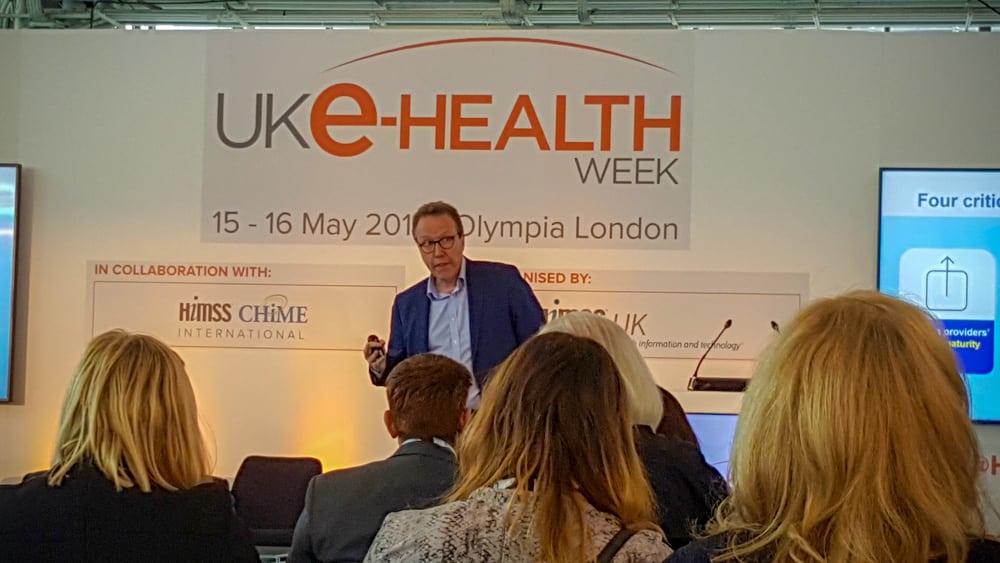NHS Digital has announced that three areas of the country will become local health and care record exemplars. But what are the so-called LHCREs looking to achieve? Lyn Whitfield explains.
Another new acronym?
Healthcare IT does like its acronyms, doesn’t it? The latest is local health and care record exemplar or LHCRE, pronounced Lycra. Three areas of the country were announced as LHCREs on 23 May 2018: London, Manchester and Wessex.
Where have the LHCREs come from?
Back in 2015, health and social care secretary Jeremy Hunt announced that he had asked US ‘digital doctor’ Robert Wachter to conduct a review of NHS technology and what could be learned from the National Programme for IT, ahead of investment in the ‘paperless’ agenda.
Wachter reported in September 2016 and one of his recommendations was that any money that was available should be directed towards more digitally advanced services; while others got themselves ready to make the most of it.
The outcome was the global digital exemplar programme which, to date, has created 16 acute and seven mental health exemplars. The GDEs are supposed to deploy “world class” IT (defined as HIMSS EMRAM Level 7 for acute trusts), to work with “fast follower” organisations and to develop “blueprints” for others to work with.
The LHCREs are the latest offshoot of the GDE programme, but cover information sharing or shared care record projects, rather than providers.
What are the LHCREs supposed to do?
The LHCRE programme is similar to the other strands of the GDE programme, in that it will invest in well-established projects (each LHCRE will get £7.5 million). However, NHS England has not indicated that the LHCREs will have fast-followers.
Instead, it seems to want the LHCREs to extend their influence by expanding. The Wessex LHCRE, for example, is looking to extend the Hampshire Health Record to surrounding counties; while London, which has several information sharing projects in place, put in a pan-London bid.
At this year’s e-Health Week conference, NHS chief information officer Will Smart said he was also looking for the LHCREs to bring “coherence and consistency” to what has become a confused information sharing picture.
Smart told the HIMSS UK event that there are now 60 information sharing or shared care record projects across the country, but they are at different stages of development, are using different approaches and technologies, and are not linking-up with each other. So, while “there is some great work going on” the LHCRE programme will try to make sure that “we are not just creating 60 new silos.”
Anything else?
The LHCREs also fit with the “target architecture” that Smart and his team have been developing to improve the collection and use of data across the NHS. The target architecture wants to create “digital innovation hubs” to serve populations of three to five million people, and support population health management.
The expectation is that some of the LHCREs will go on to become digital innovation hubs. But Smart told EHW2018 that the big aim is to “blueprint” their work so that it covers all 55 million adults in England.
“Our vision is that over the next four years or so, comprehensive local health records will be created for 55 million English citizens, so their health and care data is available to be read, by an individual or a machine,” he explained.
“We want to make sure it is available in identifiable form to clinicians and in anonymised form for other uses; and to make sure it is in the same format in the north east and the south west, so we can run the same algorithms and get the same answers.”
What will the first LHCREs do?
The Hampshire Health Record, which sits at the heart of the Wessex bid, is one of the longest-running shared care record programmes in the country. It started in 2004, using a portal from Graphnet Health, and has steadily expanded; reaching the Isle of Wight at the start of this month.
The HHR has focused on sharing a core-set of patient information between GPs and hospitals and then other care providers, including social care. The Wessex bid should see it link up with or expand to surrounding counties to support patient flows.
The Manchester shared record system is another long-running project. It went live in 2015, again using technology from Graphnet Health. From the outset, it has focused on exposing patient information to multi-disciplinary teams to support care planning. Its LHCRE bid will support the shake-up of health and care in the city triggered by ‘Devo-Manc’.
London is different. The capital has a number of information sharing and shared care record projects, using different models and technologies. Yet it submitted a pan-London LHCRE bid. The question is whether it will link-up existing projects; or move to a single model across the city.
Will there be more LHCREs?
Yes, it looks as if there will. In the official NHS England press release, Smart said the commissioning board had been “very impressed by the standard of bids received and the ambition across the country.”
Also, that “in the coming weeks we will be talking to those remaining areas to understand which two areas ready to join the initial group this year.” The press release also quoted projects in Rotherham, Dorset and Leeds approvingly.
Leeds has created a shared care record based on the PPM+ platform that is used by Leeds Teaching Hospitals NHS Foundation Trust, and led a pan-Yorkshire and Humber bid. The trust’s chief information officer, Richard Corbridge, told the website it was not giving up.
“We have a second bite at the opportunity. We just need to prove our capability,” he was quoted as saying. “Our patients receive care in patient pathways that span the region, and we need the digital infrastructure to do the same. We have a good plan to do this; all we need is to convince the team assessing this that we are the next team to back.”



